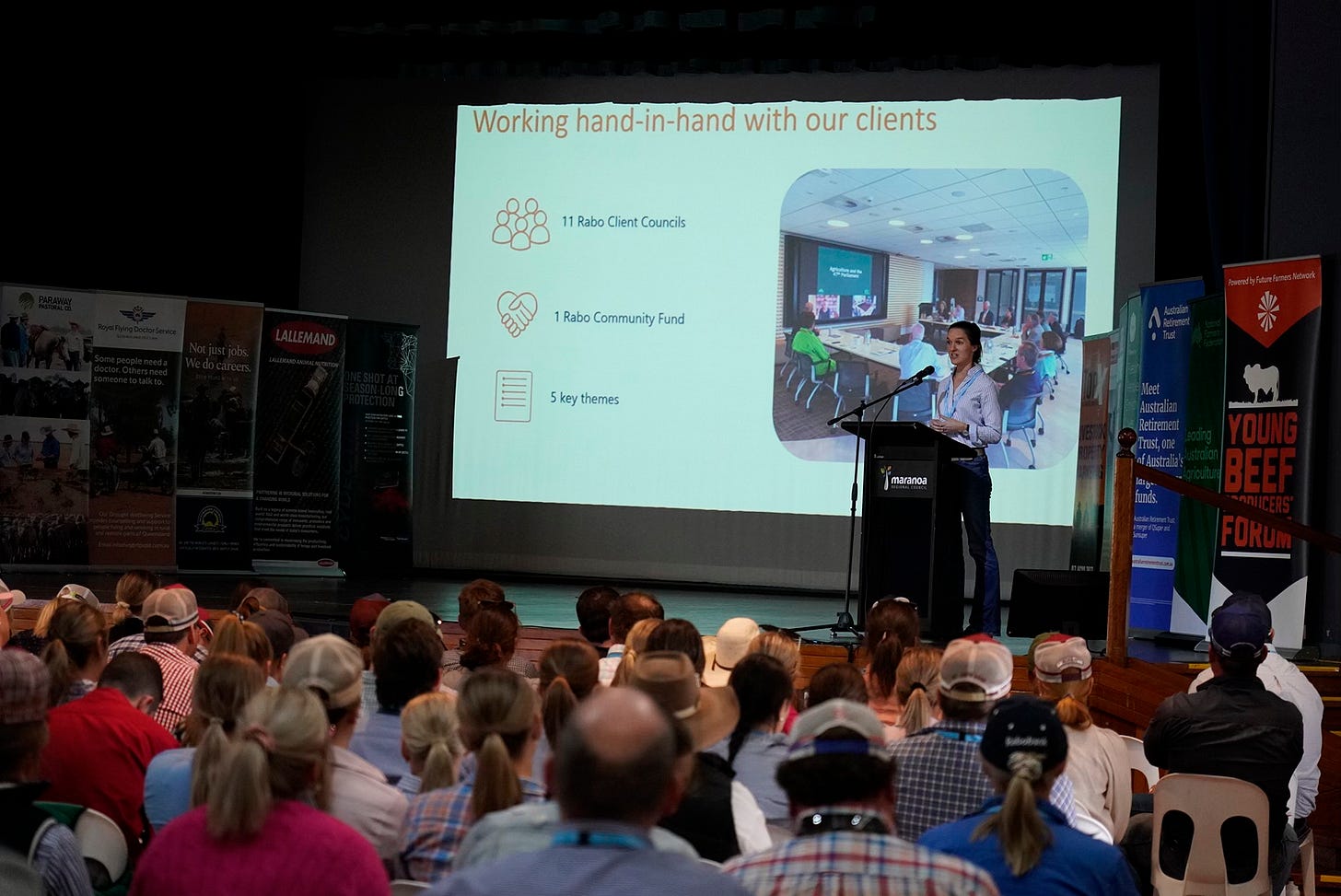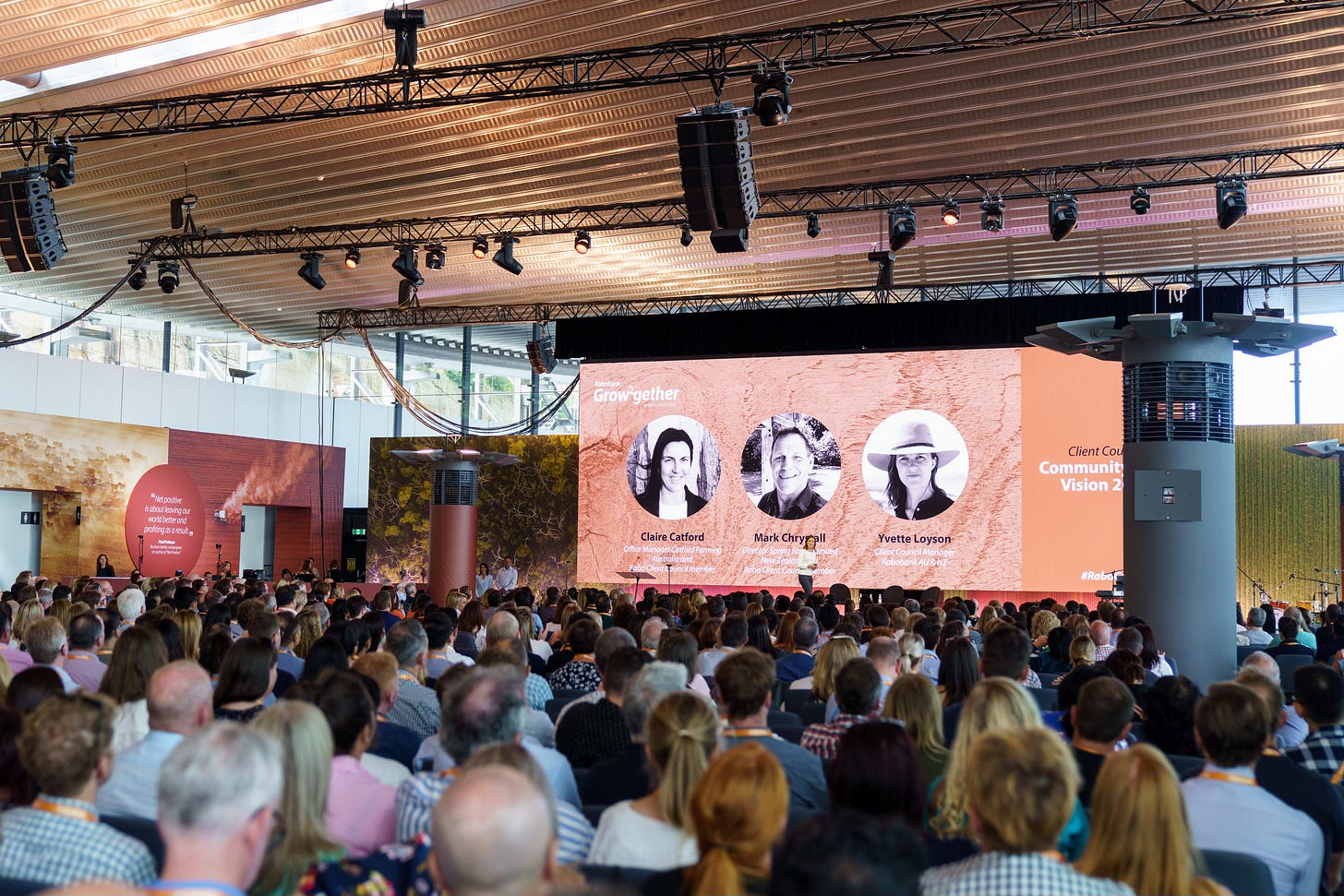The myth of the public speaking gift
My journey to become a confident speaker
“If you’re not going to call your friend yourself, you won’t have anyone to play with.”
In true Dutch-style, those were my mum’s words to encourage me to pick up the phone and ask my friend if they wanted to play.
I’ll take you along on my journey to becoming a confident speaker. We’ll go from a school play in Haarlem, the Netherlands to a 1,600 people event in Sydney, Australia. It hasn’t been a straight path and I’ve pivoted many times along the way.
Take every opportunity to practise
I was that shy kid who didn’t like making phone calls. For some reason that I cannot explain this was completely different when I got on stage. When I was five years old I played the narrator role in our school play. At the time, I was unable to study a script as I couldn’t read well enough yet. It turns out that I memorised the whole thing without telling my parents. Despite being shy, I loved getting on stage and sharing a story.
I guess we can call that the start of my public speaking journey. Not because I was a great speaker from day one, but because I discovered that it was something I enjoyed doing. I remember my first school presentations were not very impressive and I was very nervous. Despite the nerves, I kept finding opportunities to speak and command an audience - through high school debating clubs, a student job providing presentations across the Netherlands and guiding kids summer camps all around Europe.
Surround yourself with people you admire
When the time came to choose my studies, I chose Dutch Law in Maastricht mainly because it’s a broad study and it involves playing with words. My favourite part of the curriculum was moot court, where students simulate court proceedings including roles for both lawyers and judges.
In my first year, I joined the university’s moot court student association where I learned even more about how to carefully build an argument and how to convince the other parties of my position, even if that wasn’t my personal opinion. In this group I surrounded myself with more senior students who were far better speakers than I was, so I could learn from them. In my opinion this is the best way to push yourself to grow. When being around people who are all at the same level, it’s difficult to see what more is possible.
My bachelor of Law was followed by a masters degree in Corporate & Commercial Law in Nijmegen. Whilst I was good at law and I liked it enough, after graduating I realised that a career in law wasn’t for me. This insight only came to me after a 10-day silent meditation retreat that I did two weeks after my graduation. For anyone who isn’t familiar with Vipassana, it’s not for the faint of heart and it will definitely give you some time to reflect on your life choices in between the attempts to meditate for eight hours a day. It prompted me to pursue a different career.
Imposter syndrome
I pivoted and instead of joining a law firm, I joined the trainee program at the Dutch head office of a global Food & Agribusiness bank. From the first months I was involved in meetings with some of the most senior leaders of the bank. That’s where the real learning started: the shy kid was back again. How do you speak up in a room full of expensive suits? Do I have anything relevant to add in this meeting? Imposter syndrome was real. I was lucky to have amazing managers who supported me, gave me opportunities to grow and helped me see that confidence is a skill that can be learned. And as I built on my confidence, the expensive suits that once intimidated me, slowly turned into what they actually were – a plain and simple business attire. I realised over time that my input was more valuable the more I believed in it myself and that no fancy clothes could challenge the value of what I had to bring to the table.
Making mistakes
After two and a half years in the Netherlands, I got an offer from the bank to move to Sydney. I spent my first Australian Christmas on a cattle station in Northern Queensland. My colleague had been very kind to invite me to spend Christmas with her family. I had been quite confident in my English, until I got there. If you’re familiar with the Australian accent, you will know what I mean …. This Queensland accent was something different and all of a sudden I felt very conscious that English wasn’t my first language. A whole new learning of different Australian and Kiwi accents started whilst working with farmers across the Australia & New Zealand region. It took me some time to get the hang of it and I made many mistakes.
Most people were very understanding and helped me whenever I was unsure. However, there were occasions where people laughed at my pronunciation errors or where I received feedback that “despite your accent, you delivered a very coherent and clear presentation”. Even when you’re pretty fluent in a second or even third language, you will make mistakes and people may not always be forgiving. What helped me is realising that each of these moments were opportunities to grow and keep improving. The words or actions that people use to indicate your mistakes may not always align with your preferences. Not saying this is easy, but I continue to try and filter what I can learn from it.
The biggie
Through this role in Australia, I got the opportunity to present at many different occasions: presentations to groups of 20 clients, pitches to the executive team, webinars for 500 staff and a presentation for 300 young beef producers. I learned from each session, started filtering out those filler words, developed my speech writing skills and improved how to move on stage.
All these efforts were seen within the organisation, as one day I was asked to present and host a panel at our all-staff flagship event. Taking on opportunities to present makes you visible, there is no doubt about it. If it wasn’t for all those previous times where I raised my hand to present, this wouldn’t have come to me.
Was I nervous? Of course! Did I say yes? ABSOLUTELY!
Rabobank’s staff in Australia & New Zealand totals 1,600 people, I had never spoken at such a large event. The preparation was different than usual; this was not your ordinary “bring a powerpoint and go” presentation. I had to prepare a script for the teleprompter I’d be using, I got my make-up done on site and during the panel it was my responsibility to keep within the time and wrap up at the right moment without running out of questions. I spent evenings practicing, refining and getting completely comfortable with the text. I had never been so nervous for a presentation in my life. But I did it - and it was awesome!
And that’s how I went from this
to this
The preparation and hard work paid off; I received overwhelmingly positive feedback from the audience immediately after the event and in the weeks to come.
This presentation made me realise that I wanted to do more with public speaking. Standing there on stage and sharing a story gave such a kick. It became the catalyst to really start dedicating my efforts towards public speaking and made me realise that I want others to also say YES to a next speaking opportunity.
That was the inspiration to found Brava. Brava offers 1:1 women’s public speaking & mindset coaching, workshops and event MC’ing. Check out the website if you like!
The myth
The biggest take-away from my journey so far? It’s a myth that public speaking is a gift. In my view it's a skill that needs practice and dedication. It’s a matter of continuous improvement. Because there is always more to learn.
What’s next?
Next week I’ll dive into job applications and how to let your communication skills steal the show.







So happy to see your growth from a shy kid to a confident and successful public speaker. A lot of students don't know how to start but the first step you have to take is raising your hand and participate in class. Then you can lead class presentations, apply for different public speaking clubs and challenge yourself by going to different competitions.
What you do at school will give you a solid ground for whatever else you do later on.